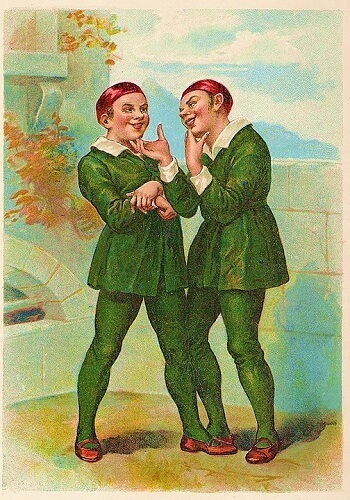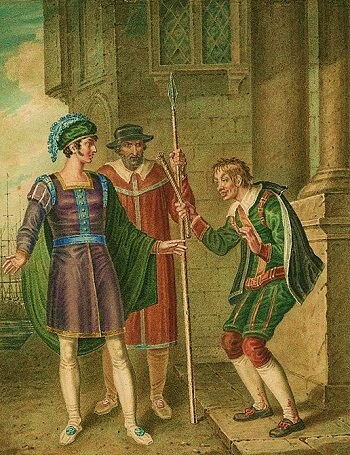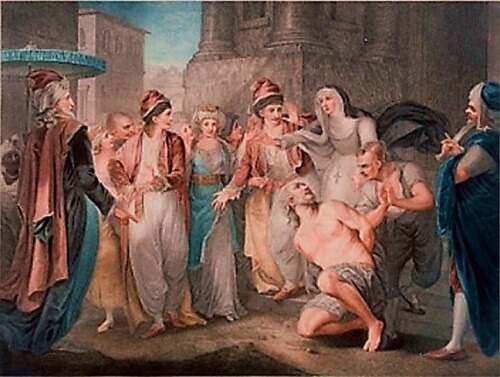Activity 1: Recite the Story Information
- Before and after reading or listening to the story, recite aloud the title and author of the play.
Activity 2: Narrate the Story
- After reading or listening to the story, narrate the events aloud in your own words.
Activity 3: See the Playwright and Poet William Shakespeare
- Study the controversial 'Cobbe portrait' below, which may be a real-life portrait of Shakespeare.
- The portrait contains the Latin phrase 'Principum amicitias!' which means 'The alliances of princes!'
Activity 4: Map the Play
- AEgeon and AEmilia are from Syracuse (Siracusa) on the island of Sicily, Italy.
- Find Siracusa and the Adriatic Sea on the map of Italy.
- Find the western shores of present-day Turkey, where the ancient city of Ephesus was once located.
- Point to the locations of Italy and Turkey on the map of the world.
Activity 5: Can You Find It?
During the week, zoom in to study the painting from Act V Scene I of 'The Comedy of Errors,' by Francis Rigaud. Find the following:
- Duke of Ephesus (under parasol)
- Antipholus Twins (wearing crimson and brown hats)
- Dromio Twins (mostly bald)
- Adriana (wearing a turquoise and white gown)
- Abbess (wearing habit and cross)
- AEgeon (kneeling, about to be executed for non-payment)
- Headsman (holding a knife)
- Priory (nunnery)
Activity 6: Rehearse the Play Scenes

- Use your theater, props, and characters to rehearse the two abbreviated scenes on pages 106-107 of 'Third Grade Shakespeare Theater Pages.'
Activity 7: Hold Opening Night
- Enact a live performance for family members and/or friends.
- Instructors may need to prompt children to say their lines.
- Important Note – Keep your actors, actresses, and set props safe for future productions.
 Beautiful Stories from Shakespeare I
Stories from Shakespeare I
Beautiful Stories from Shakespeare I
Stories from Shakespeare I




 Beautiful Stories from Shakespeare I
Stories from Shakespeare I
Beautiful Stories from Shakespeare I
Stories from Shakespeare I






